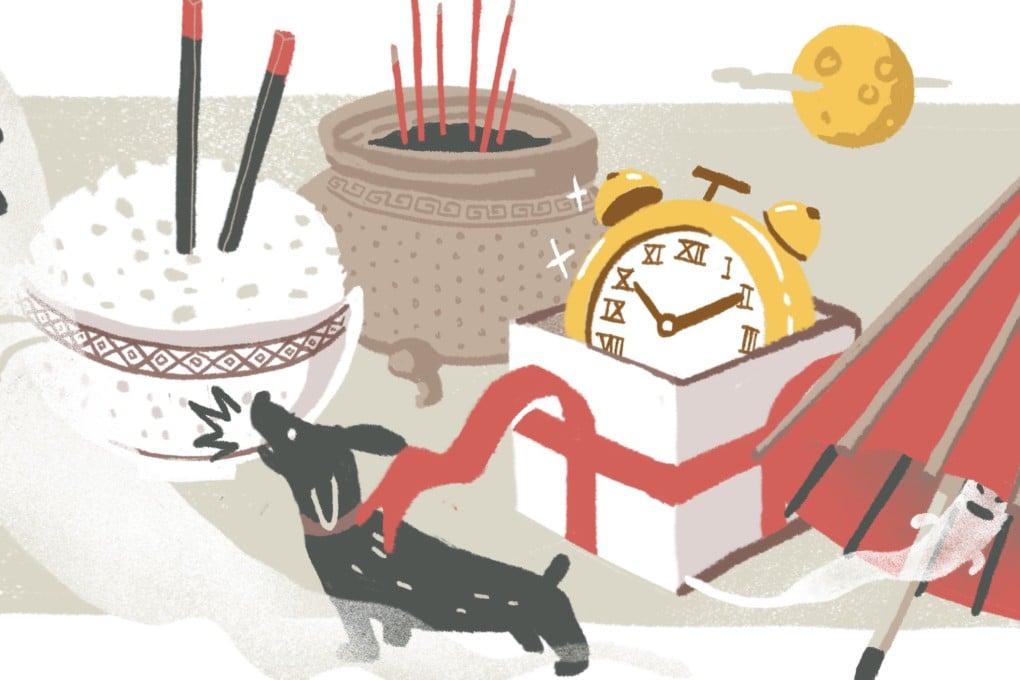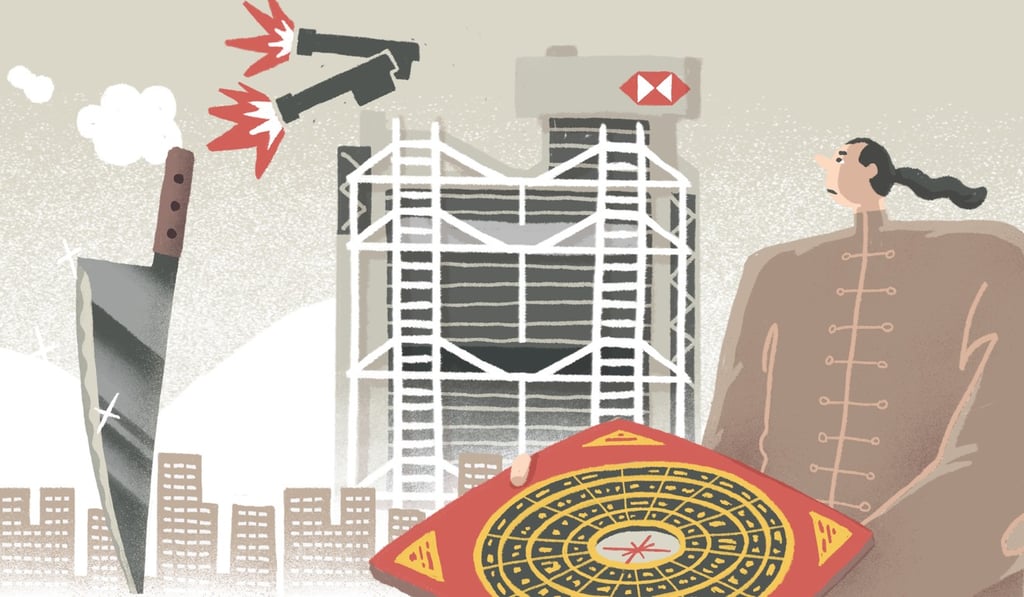Auspicious numbers, no-go presents and self-grooming quirks: a guide to Hong Kong feng shui and superstitions
- City still retains practices steeped in tradition and beliefs, from the sound and pronunciation of numbers to the flow of energy through spaces

When construction on the Bank of China Tower started in Central, Hong Kong in 1985, urban legend has it that the owners of the nearby HSBC Building were aghast at what they saw as a bad omen – the sharp corners of the tower were likened to a knife cutting into nearby structures.
A series of unfortunate events, including an economic downturn and the sudden death of then Hong Kong governor Edward Youde a year later, convinced feng shui believers their fears were warranted.
The worried owners of HSBC Building, after consulting feng shui experts, then installed two maintenance cranes in the shape of cannons on top of their structure in a bid to aim it at the rival bank’s “knife edge” and deflect the bad energy.

The episode reflects how cosmopolitan Hong Kong still respects tradition. Another more ubiquitous sign of local superstitions is how most buildings skip numbering the 4th floor because in Cantonese, the digit four sounds like the word “die”.
Following the Lunar New Year festivities, the Post explores other Chinese beliefs that still prevail in modern-day Hong Kong.